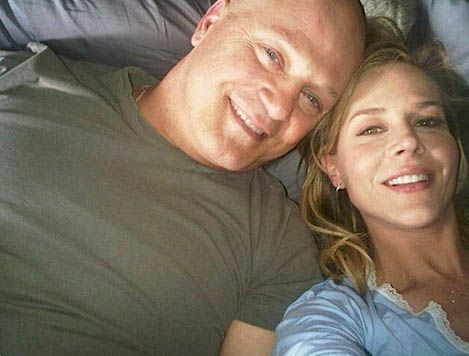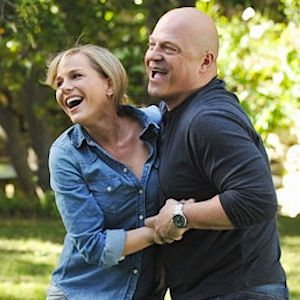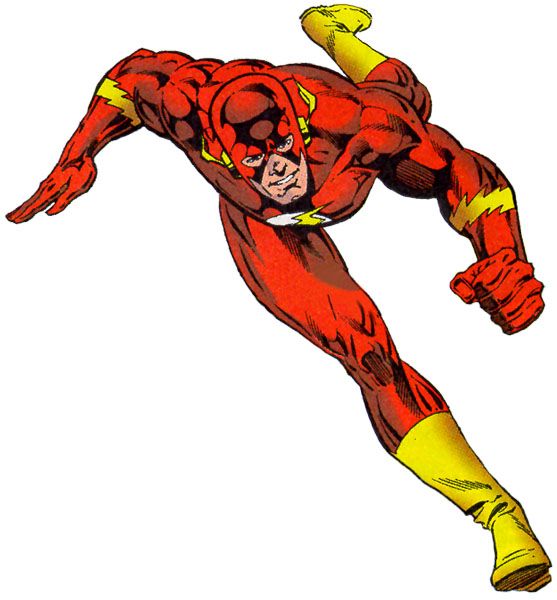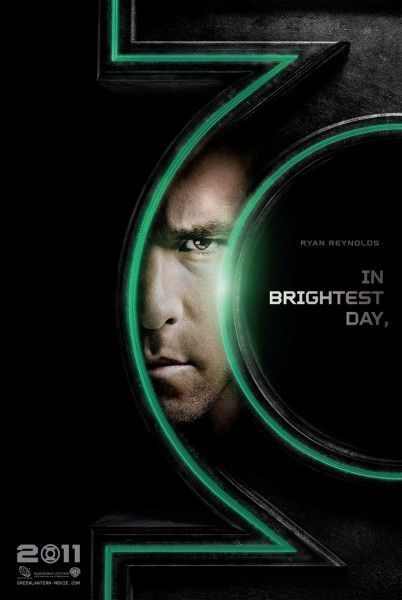The new ABC series No Ordinary Family, premiering on September 28th, tells the story of the Powells (played by Michael Chiklis, Julie Benz, Kay Panabaker and Jimmy Bennett), a family who goes on a bonding trip to South America, in an attempt to reconnect with each other. When their plane crashes into the Amazon River, they soon realize that their lives have been forever changed, as each member of the family starts to show signs of new, unique and distinct super-powers and they are left to navigate whether their newfound abilities will finally bring them together or push them further apart.
Following the show’s Sunday afternoon panel at the Television Critics Association Summer Press Tour, co-creator/executive producer Greg Berlanti took a few minutes to talk about all of his current superhero projects – No Ordinary Family, Green Lantern and The Flash, for which he is currently working on developing the story. Check out what he had to say after the jump:
Question: Is there going to be more to the origin story for how this family gets their powers after the plane crash?
Greg: Yes. We were just going through ways for how we could begin it and we wanted a lot of mystery to it. As time goes on, we show that maybe the crash wasn’t totally responsible. It seemed like a great trope to play with, and it plays a part, but it may not play the complete part.
So, the whole origin story is not in the pilot?
Greg: Exactly.
Why did you choose Brazil as the setting for the plane crash?
Greg: We just wanted it to be fun and a bit of an adventure and set a tone, from the beginning, where the show wasn’t just stuck in one city.
Why do you think this is such a great time for sci-fi shows?
Greg: Probably the thing I’d say is that there’s even more blending of genres happening. They blend sci-fi with action, or family drama with a mystery show. People don’t want to just do the same thing that everybody’s done a thousand times before, and that’s probably a big part of it. I think you’re also seeing television and features speak to each other. You see it happen in movies, and it starts to get reflected on the small screen.
Can you talk about how Avatar has changed your perspective of the film and television mediums?
Greg: I think the scope of the canvas that he painted with on that film was extraordinary. I think if I even try to come close to aspiring to that, I’d get in a lot of trouble. Every time James Cameron does something, it seems to widen the parameters of what people can try to do.
Where did No Ordinary Family fall into your schedule with the development Green Lantern?
Greg: I had already written a couple of drafts of Green Lantern, and that was a part of it. I definitely had learned some stuff from that, that I wanted to be able to use in television.
As the writer and producer of Green Lantern, what’s it like to see pictures from the set continuing to pop up online?
Greg: It’s exciting. I let other people deal with all that stuff. I think that comes with the territory of doing something that’s scrutinized.
With space, aliens and this ring that creates things, how did you approach making Green Lantern accessible for audiences?
Greg: Interestingly enough, from the place of character. It was a melding of a traditional superhero film on earth and a space opera. It was a melding of genres. I did it with two other guys who I’d worked with a lot in television. We’re all comic book fans and we all grew up wanting to have an opportunity like that, so we just started listing all the stuff we would want to see in a movie like that, and that was a large part of where the story came from.
Is it more Star Wars than Superman then?
Greg: Hal Jordan has been called the Luke Skywalker of the DC Universe, so I think it does have comparisons to that.
Why did you decide to cast Julie Benz in No Ordinary Family?
Greg: She came in, she was terrific and her chemistry with Mike [Chiklis] was awesome, but really we wanted someone you could really work for. We have the classic working mom character and we didn’t want her to seem to distant, and there’s something so accessible about her. You could imagine her as a speedster, and that was cool too.
Do you have any plans for any gay characters on the show?
Greg: Definitely. I can’t imagine doing a series and not wanting to tell those stories too. Nothing has come up in the first three or four episodes, but it would be my hope, in the first year, to deal with those issues, especially because it’s still a family show.
Was it hard to think of four different powers, so that you could have one for each of the family members?
Greg: That was a big part of it. The origin of their powers really stems from things that they may feel like they’re lacking in their life, and we explore that as the series goes on. So, that’s how we thought of it. The kid with a learning disability is super-smart, the mom who feels like she can’t be everywhere at once gets speed, the dad who feels like he’s lost the strength in his relationship and his life gets strength and the daughter who only cares about herself and is only thinking about herself is suddenly forced to think about everybody else. It speaks to who they are as people.
Where are you filming this show?
Greg: We’re filming here in L.A., right where we film Brothers & Sisters, at ABC Studios in Burbank, across from the executive offices.
How has technology made a show like this affordable?
Greg: The cost of visual effects in post has gone way down, but there’s a higher standard, so you still have to try to achieve something that looks better, so it washes out. There’s just the desire, on everybody’s part, to make something look good. Budgets, in general, in television have gone up dramatically in the last 10 years, and this is one area where we can focus.
Are you still involved with The Flash?
Greg: Yes, I’m still involved with The Flash. I’m a producer on it, and I’m working on the story with the same guys I did the Green Lantern script with.
Is there something specific that drew you to superheroes and their stories?
Greg: I grew up loving them, like a lot of guys, and I had an interest in doing that. Interestingly enough, John [Harmon Feldman] came to me with the idea for No Ordinary Family last year. I had done family shows, and I had obviously participated in something like Green Lantern, so I thought, “Oh, wow, that’s a great fusion of the two.” But, it wasn’t a design on my part to do more of that. It just happened that way.
Are you deeply entrenched in the superhero world, especially the DC Universe, with all of their plans to move forward?
Greg: I’m very fortunate to be a part of two of their properties right now, and that’s very exciting.
Just two?
Greg: Yes, just two.
When will The Flash happen?
Greg: We’re just getting into the script. We’re just starting the script, so that’s about where we’re at.
What are the most important elements in making superhero stories more human, so that people who aren’t familiar with the characters can also relate to them?
Greg: I think finding ways to ground the characters is important. You have to always try to think about them like real people first, and not just heroes. They have to be real characters. As people do more and more superhero stuff, the characters are what distinguish it, just like in cop shows. There’s a difference between Mackey and Sipowicz. It’s the characters that ultimately distinguish something.
With Green Lantern, does everything that manifests from the ring come from the comic books, or were you able to come up with some of your own ideas?
Greg: Everybody is down there, working away on really creative constructs and I think the film will be loaded for them. That was definitely a blast. When we were first writing it, we were a little timid about writing all of it into the script because we thought, “How will that read? Will they think it’s too goofy?” So, in one of the initial drafts, we wrote a lot of, “A ring blast,” or “A shot from the ring.” We didn’t always get as detailed with it. And then, as we got later and later into drafts, and they could provide more artwork and really show people what the movie could be, we could be more explicit about what those things were without it coming off too goofy.
Have you seen what that will look like yet?
Greg: Oh, yeah. It’s a feast for the eyes. Martin Campbell is an amazing director, and it’s going to be a pretty incredible film.
Is the stuff they showed at Comic-Con really representative of the whole film, or is it just a taste?
Greg: I think it’s just a taste. They’re still shooting. They’re shooting this week.
From the beginning, were you thinking of a sequel, so that you could layer that into the story?
Greg: We actually treated it a lot like the first year of a series, when we did the first movie, just because we did want to lay stuff out, to deal with the mythology in that way. Writing for series helped us in that, in terms of thinking about stuff as just the beginning, but also part of a chapter, as much as anything else.




